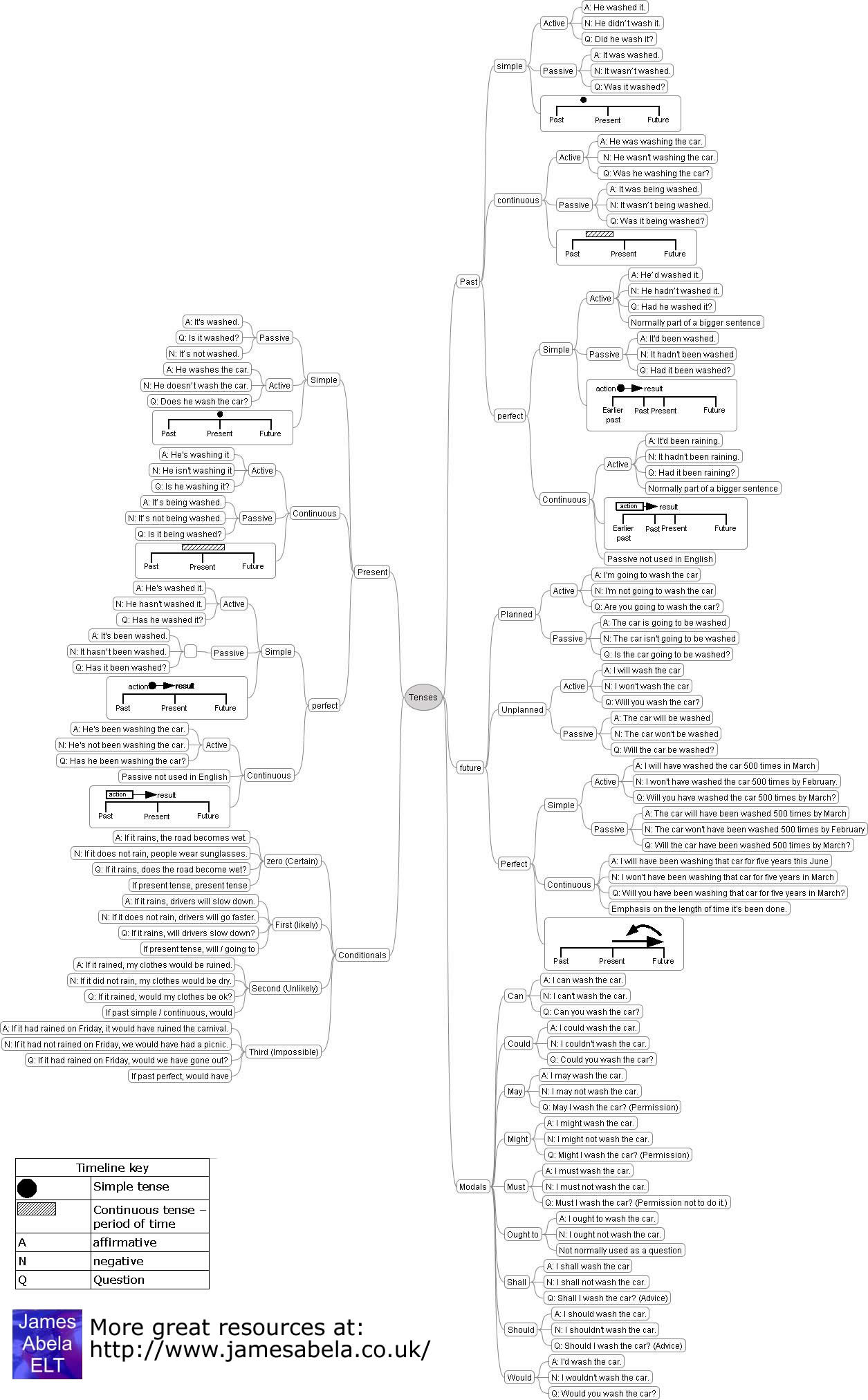What is a tense?
In linguistic terminology, "tense" is a part of verbal paradigm that refers specifically to the time of an utterance. It is impossible for any language to have more than three tenses in this sense, since any action is either past, present, or future.
In English, we do the basic tenses this way:
- Present: I walk to the store.
- Past: I walked to the store.
- Future: I will walk to the store.
But what is that with the word will there in the future tense example? It turns out that while English can refer to present and past time using inflections on the verb itself, the future tense always requires another word. Furthermore, there are multiple ways of doing this:
- I will walk to the store.
- I'm going to walk to the store.
- I'm walking to the store in five minutes.
- I'm about to walk to the store.
So while English has plenty of ways to refer to future actions, in terms of base verbal morphology there are only two tenses in English: present and past.
So what about perfect, progressive, and the rest of that stuff?
Linguists refer to these as aspect. A verb's aspect refers to its duration, frequency, or completeness. English has three core aspects:
- Simple: I walk to the store.
- Progressive: I am walking to the store.
- Perfect: I have walked to the store.
Plus, we can combine progressive and perfect together as follows:
- Perfect progressive: I have been walking to the store.
Unfortunately, the way that these forms interact with meaning is very complex. In particular, we often use the simple present ("I walk to the store") to refer to habitual actions, and the simple progressive ("I am walking to the store") to refer to currently ongoing actions.
Now you've made me upset
That's because of mood, the other major component of the English verbal complex. Mood refers to the speaker's attitude towards the action, whether the speaker thinks the action is necessary, obligatory, inevitable, hypothetical, etc. We have a lot of moods in English, indicated by our modal verbs:
- I shall walk to the store.
- I will walk to the store.
- I should walk to the store.
- I would walk to the store.
- I may walk to the store.
- I might walk to the store.
- I must walk to the store.
- I can walk to the store.
- I could walk to the store.
Here, again, the form interacts with the meaning in a complicated way. The modal verbs will and shall tend to indicate future time more than anything really "moody", and there are constraints on which moods can be used in which tenses. Just to keep you on your toes.
Really we have 4 modal verbs which occur in present/past tense pairs: will/would, shall/should, can/could, may/might, and then must which can only be present-tense.
And don't forget about voice
Because we also have active voice and passive voice in English, which refer to the subject and the object are assigned to the verb.
- Active: I hit a dog with my car.
- Passive: A dog was hit by a car.
These have nothing to do with tense, but they are still part of the verbal paradigm.
Putting it all together
If you multiply all of those together you get eighty-eight possible combinations.
((5 moods × 2 tenses) + (1 defective mood)) × (4 aspects × 2 voices)
Don't try to memorize them all. Just try to remember the way the pieces interact, and you should be able to construct and interpret any combination that you come across. And remember that many verbs, like the past debitive perfect passive about to appear in this sentence, should rarely have ever been used by anyone.
But it's not that simple
It never is. The preceding elements are the core verbal paradigm, but there are a lot of other things that English does with its verbs to indicate elements of mood, aspect, or tense. Just to name two, we have:
- Past habitual: I used to walk to the store.
- Immediate future: I'm about to walk to the store.
There are lots of other combinations of helping verbs, adverbs, and prepositions which are sometimes used to express tense-like or aspect-like things in English. Merely knowing how the core verbal paradigm fits together doesn't necessarily help you interpret these kinds of utterances. Rather, these idiomatic verbal constructions have to be learned one at a time.
Also, please do read the comments on this answer, as the commenters have brought up numerous other subtleties and distinctions which I didn't get into the main post. The final takeaway of all this discussion is that English verbs are complex and you probably can't count how many forms they have.
Have fun!

